
We’re in matching pajamas — burgundy, orange, brown — unfold like starfish throughout the heated ground. We’re within the jimjilbang, roughly translated from Korean as “heated rooms for steaming and relaxation.” Some whisper, some sleep, some stare on the ceiling, misplaced in thought. The pink Himalayan salt sauna glows like stained glass. I style the salt of my very own sweat gathering on my higher lip. Every little thing strikes at half-speed. I’m right here to clear psychological area, like closing tabs on my telephone, making room for deeper processing.
I convey massive questions and massive emotions to the spa, letting them work out through the rituals of bathing. I rinse off the skin world upon entry and unwind within the sizzling tub. The warmth is a litmus check of the place my psychological edges are at — how lengthy I must return to my physique after the week’s stresses. Icy chilly plunges reset my nervous system — like a pc reboot — reminding me to launch with each breath. I rinse and repeat, these waters offering me with security and luxury on my path for good orderly path.
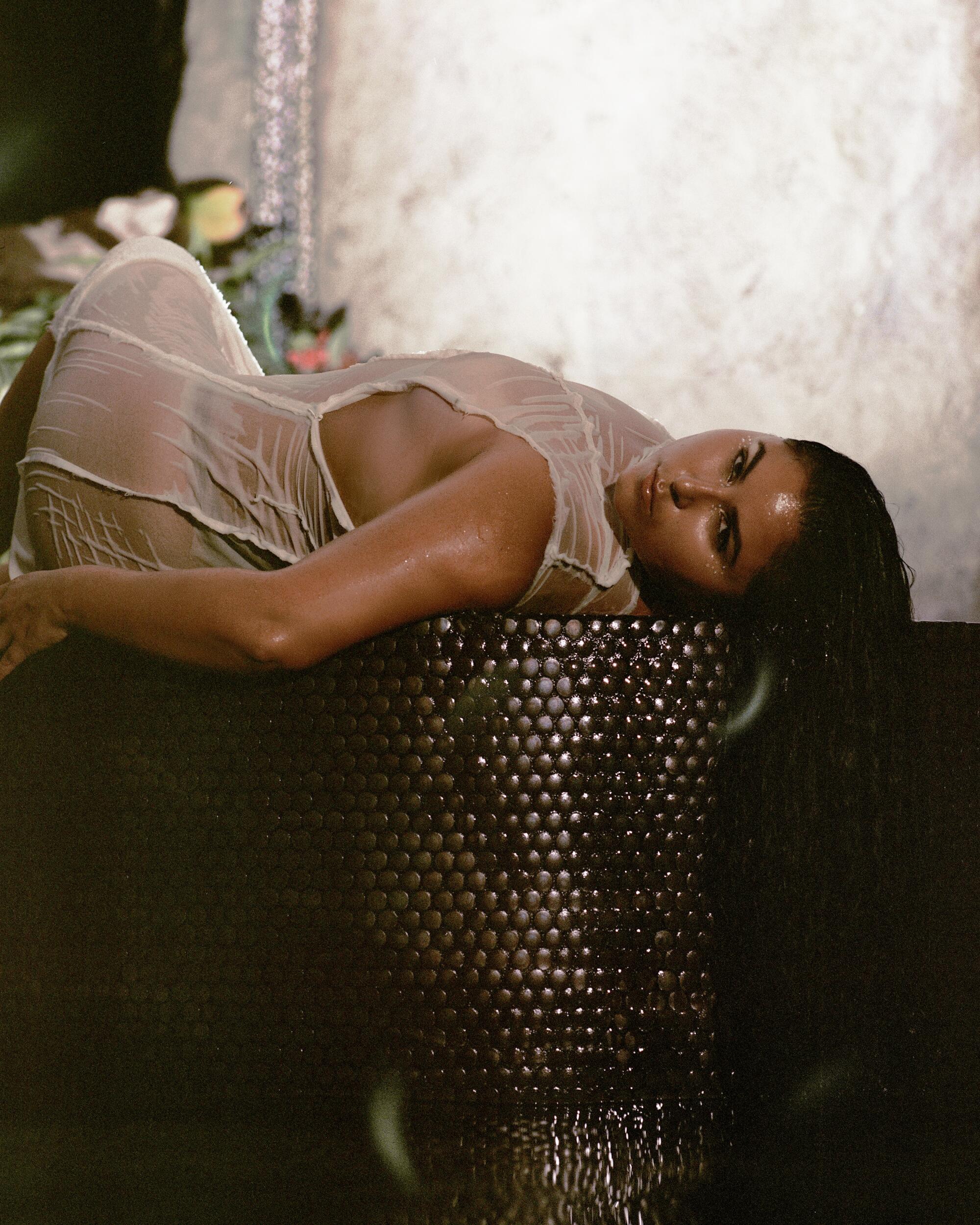
Cecilia wears Comme des Garçons gown from the Ruby.
For years, I’ve been touring spas not solely within the U.S. however globally, together with Japan, Denmark, Paris and Mexico. Inadvertently, I’ve change into bathing-obsessed (like getting-married-at-a-hot-spring obsessed), writing my observations on a Substack named S.P.A., paying tribute to the traditional Romans who used the abbreviation to mark the presence of water — mostly thought to face for both Salus per Aquam (well being by water) or Sanus per Aquam (sanity by water). I discover “Why not both?’” since water cleanses us — not simply bodily however spiritually, emotionally and mentally.
Los Angeles stands out as one of the crucial huge and diversified bathing cities on this planet. Throughout the town, there are dozens of Korean spas, Russian Jewish banyas and even pure sizzling springs hiding inside nondescript buildings and strip malls. The historical past of L.A.’s bathing panorama runs deep, and there’s greater than what meets the attention right this moment. Throughout the late 1800s, settlers in Los Angeles trying to find gold or oil as a substitute discovered water (not fairly the fountain of youth however not not the fountain of youth both). Huge public swimming swimming pools, often called “plunges,” had been scattered throughout the town the place folks would be taught to swim. Bimini Baths, as soon as one of many largest, stood on the present-day intersection of Third Road and Vermont Avenue, the place a Vons grocery retailer now sits.
One relic from this period is the Beverly Sizzling Springs, an artesian properly as soon as utilized by Native Individuals that was rediscovered in 1910 when Richard S. Grant bought the land as a wheat subject. Over time, the properly was forgotten, till 1984, when it was rediscovered and changed into a spa. The alkaline water with wealthy mineral composition is the one pure sizzling spring that flows immediately right into a constructing left uncapped in central Los Angeles. The partitions mimic a cave and the water echoes in opposition to the bouldered ceiling. Once I go, I put on a disposable hair internet and fake I’m a grotto nymph, crawling across the corners of my unconscious transporting me again in time.

Moist Journal Subject 3 from October/November 1976
(Images and design by Leonard Koren)
One of many earliest institutions I visited in L.A. was Metropolis Spa, a Russian bathhouse that has been working for greater than 70 years. It was right here that my journey into bathing tradition intersected with the pioneering work of Leonard Koren, who started documenting L.A. bathing tradition again in 1976 with Moist: The Journal of Connoisseur Bathing. A go to to Metropolis Spa confirmed my suspicion: This cherished Jap European-style institution was previously Pico-Burnside Baths, as soon as the stage for Koren’s clever journal photograph shoots.
Moist, which ran for 5½ years, was an excellent celebration of bathing and featured contributions from figures like Richard Gere, David Lynch, Debbie Harry and Ed Ruscha. The problem themes had been playful, starting from “Drinking Water: Bathing From the Inside Out” to “Getting Wet in Public Places” (you may peruse the again points within the LACMA archives). The concept for the journal got here to Koren whereas he was in structure college at UCLA. Disenchanted with fashionable and extra “heroic architectures” of his day, he “became more curious about less self-conscious, more human approaches to place-making” — just like the on a regular basis area of loos. The 34 points that adopted had been odes to the “small, intimate environments” of bathing, and had been the beginnings of Koren’s lengthy profession in publishing, as he went on to make celebrated books about raking leaves, arranging objects, Japanese style and extra.
Curious to speak with Koren about all issues bathing and Moist, I arrange a name to attach with him in Rome, the place he now lives.
Courtney Wittich: In your early 20s, you co-founded the Los Angeles Positive Arts Squad, a collective that made murals across the metropolis within the ’70s, and you then pursued a grasp’s diploma in structure at UCLA. What pulled you towards bathing as a inventive focus?
Leonard Koren: Whereas in structure college, I fantasized about making a broadly accessible atmosphere that supplied among the identical aesthetic marvel and intimacy as the standard Japanese tea home did. The American rest room, I in the end realized, was in plenty of methods a up to date answer. This led me to additional discover the foolish and sacred dimensions of baths and bathing.
CW: The primary bathing occasion you hosted was at Pico-Burnside Baths, which led you to the creation of Moist journal. Are you able to inform me a bit extra about that?
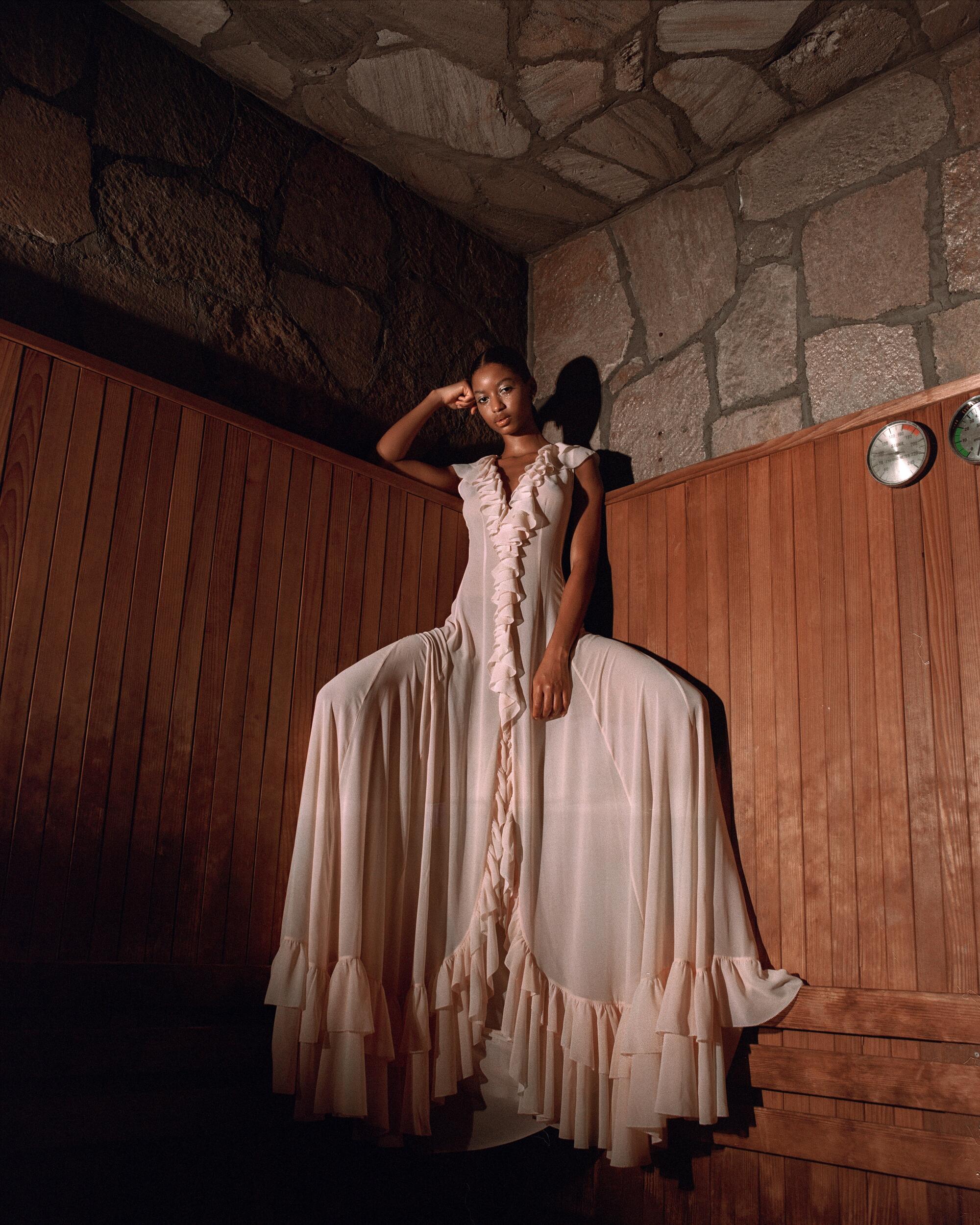
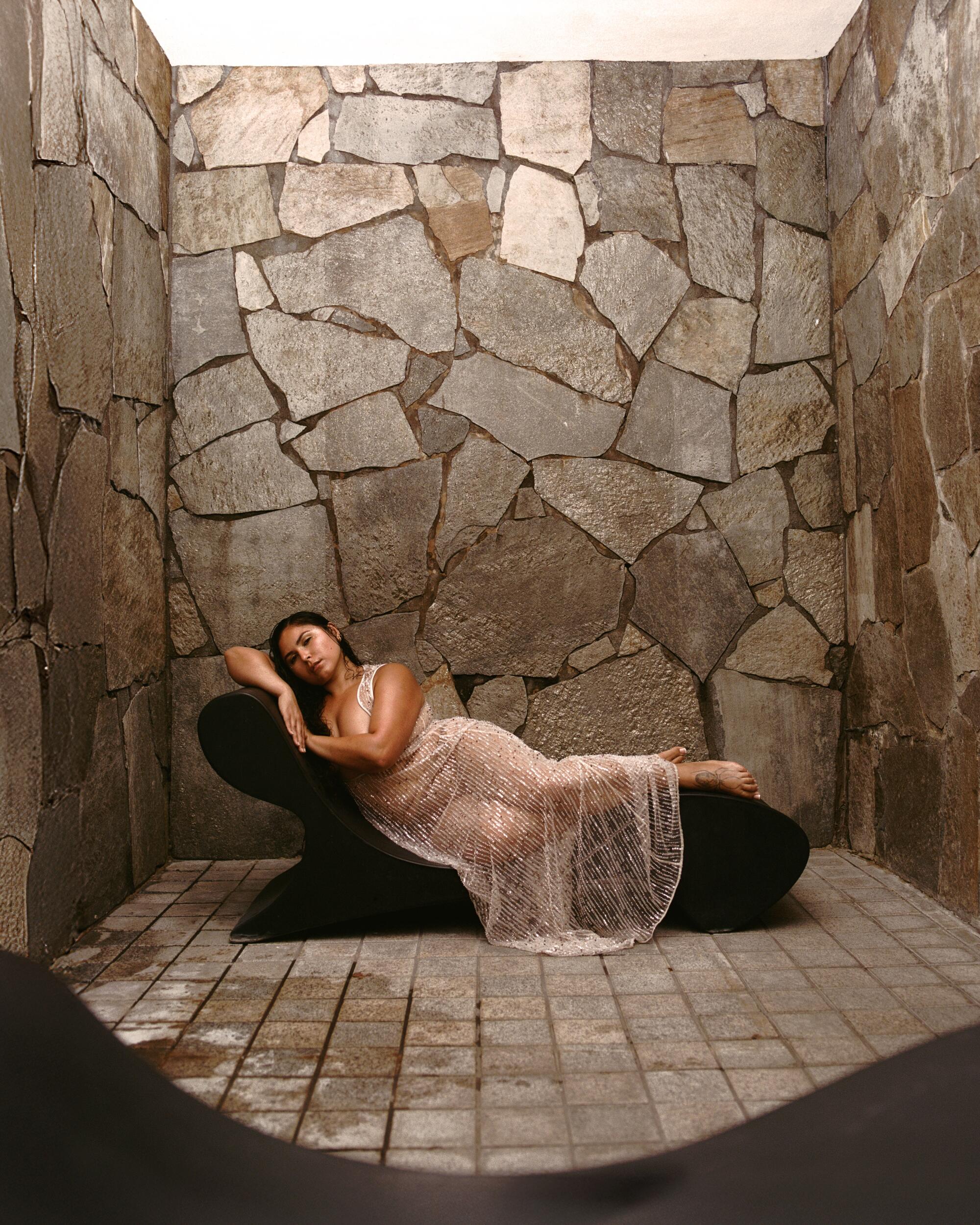
Madelane and Cecilia put on SARAWONG clothes.
LK: I had been doing what I referred to as “Bath Art” tasks. I did silkscreen prints and lithographic prints of individuals bathing in varied substances and varied modes. There have been fairly a number of individuals who had modeled for my tasks, primarily pals and acquaintances, designers, folks within the film trade. And I noticed that I actually ought to repay them for his or her kindness. I had little or no cash on the time and realized that if I despatched everybody $5 it wouldn’t be very significant to them. Then, once I was speaking to a pal, he jogged my memory that I knew this place — the Pico Burnside Baths, which was an outdated Russian Jewish bathhouse. I made an appointment to speak to the house owners, and I requested them if I might lease the bathhouse for the night, they usually stated, “Well, we don’t do that.” After speaking for some time, they stated, “OK” (I imagine it was $450 for the night time). I stated we’re going to have women and men right here, they usually stated, “No, no, there’s never any coed bathing here.” And I stated OK, and as I used to be strolling out the door they stated, “If you’re out by midnight.” And that was principally it.
I requested some pals to cater, who had been nice cooks. I employed an electrical violinist to rove across the bathhouse and play through the occasion. Folks got here in each method of gown and undress as a result of the invites I despatched out had been purposefully obscure. My concept was that individuals didn’t know the way they need to gown or how one behaves when an individual, totally clothed, is speaking to a nude individual. New social guidelines had been invented on the spot, creating a whole lot of what I name social vitality. It was a really electrical night — folks like Rudi Gernreich, the inventor of the fashionable one-piece bathing go well with, and even a reporter from the L.A. Occasions, Beth Ann Krier; there was an article of this bathtub occasion on the entrance web page of one of many sections of the L.A. Occasions. I used to be excited it was a really profitable occasion, and within the following days, I considered how I might harness this social vitality. Out of that rumination got here the concept to start out {a magazine} about connoisseur bathing, which I referred to as Moist!
CW: Did this bathing occasion change into the template for the journal’s future occasions?
LK: It’s troublesome to say. The showering occasions of Moist had been conceived as creative social experiments, not as enterprise prototypes. The rituals and social understandings that advanced out of the Moist bathtub events had been fluid, ever-changing and unpredictable. I might assume that the magic of spontaneity and extemporaneous invention is one thing that the present bathing companies hope for.

Cecilia wears Jil Sander set from the Ruby.
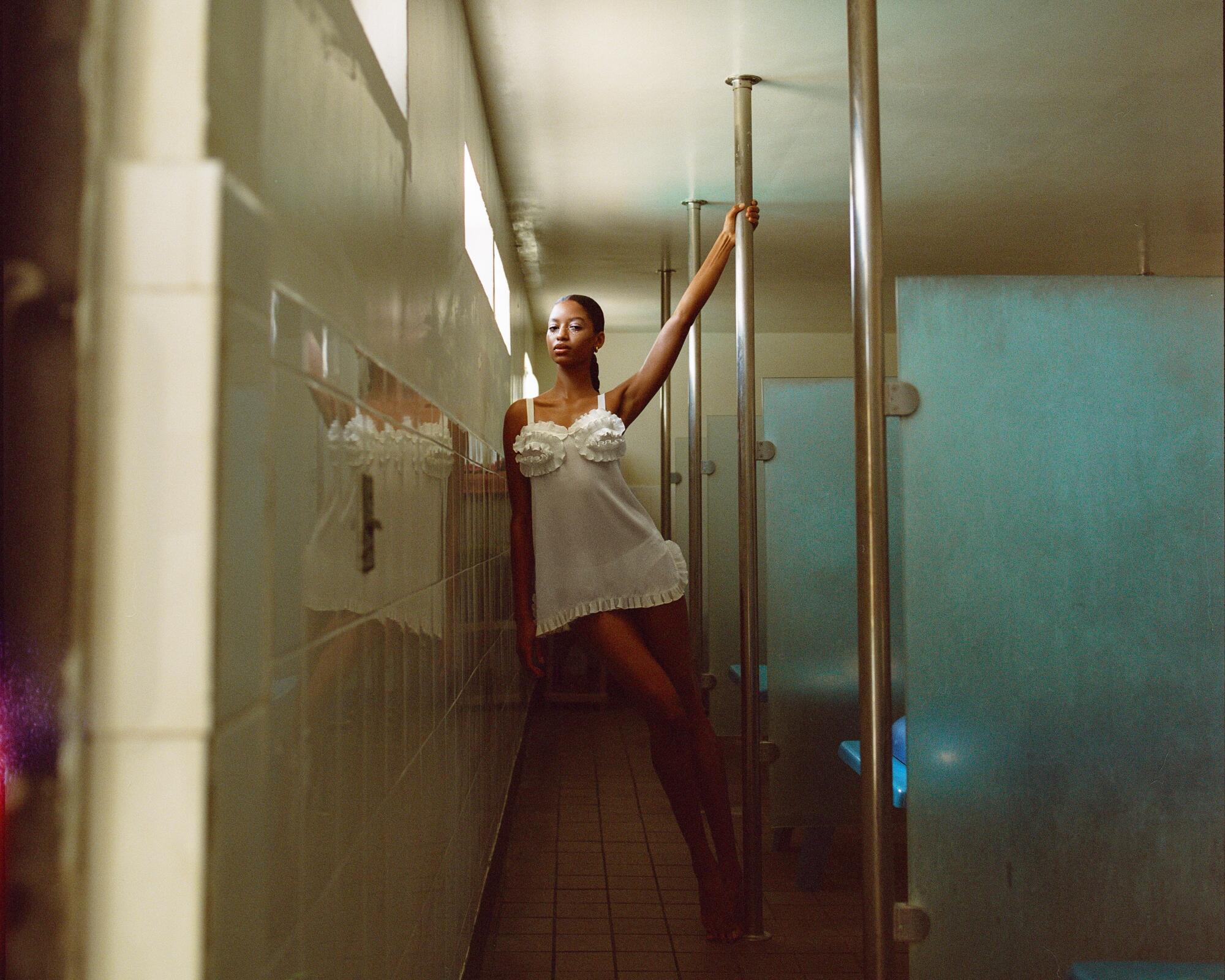
Madelane wears Dior slip gown from the Ruby.

Moist Journal Subject 6 from April/Could 1977
(Images by Brian Leatart; Design by Thomas Ingalls; Courtesy of Leonard Koren)
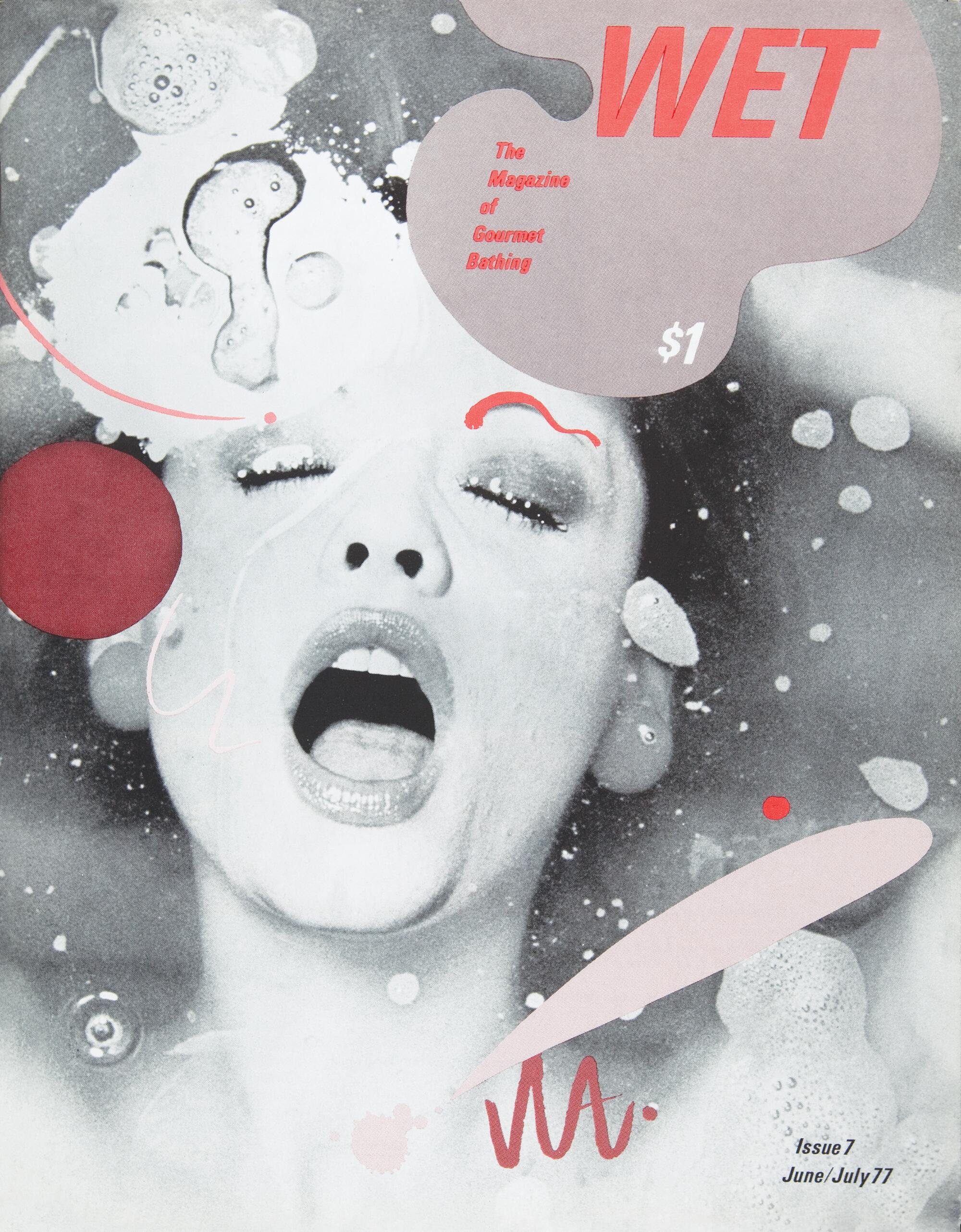
Moist Journal Subject 7 from June/July 1977
(Images by Raul Vega; Design by April Greiman; Courtesy of Leonard Koren)
CW: Every difficulty of Moist had such a singular visible id by way of the brand, format and canopy artwork. How did you strategy the design for every difficulty? What influenced your selections?
LK: Moist was above all an artwork mission. A key side of the mission was to make every new difficulty of Moist as conceptually and visually completely different from the earlier ones as doable. So all of the design and editorial choices naturally advanced from this self-imposed mandate.
CW: You had been creating this complete world round bathing — occasions, bathtub artwork, papers, {a magazine}. Moist was so forward of its time in the way it blended design, philosophy and tradition. Did you consider it as half of a bigger cultural shift? What had been you consciously responding to — or rebelling in opposition to — whenever you made it?
LK: I got here up with the concept for Moist when dwelling in Venice, California, in what had as soon as been a gondola storage. On the time Venice had an amazing quantity of inventive freedom as a result of nobody actually cared a lot about what went on there. I feel Moist was merely my creative response to the absurdities inherent in being a human being at that specific time and place.
CW: Whereas dwelling in L.A., did you have got favourite locations to wash? Any spas or springs you stored returning to?
LK: On weekends whereas in structure college and whereas making Moist, pals and I might journey up and down California on the lookout for obscure, undeveloped sizzling springs. Of the developed sizzling springs we discovered, Esalen and Tassajara, circa 1976, had been my favorites.
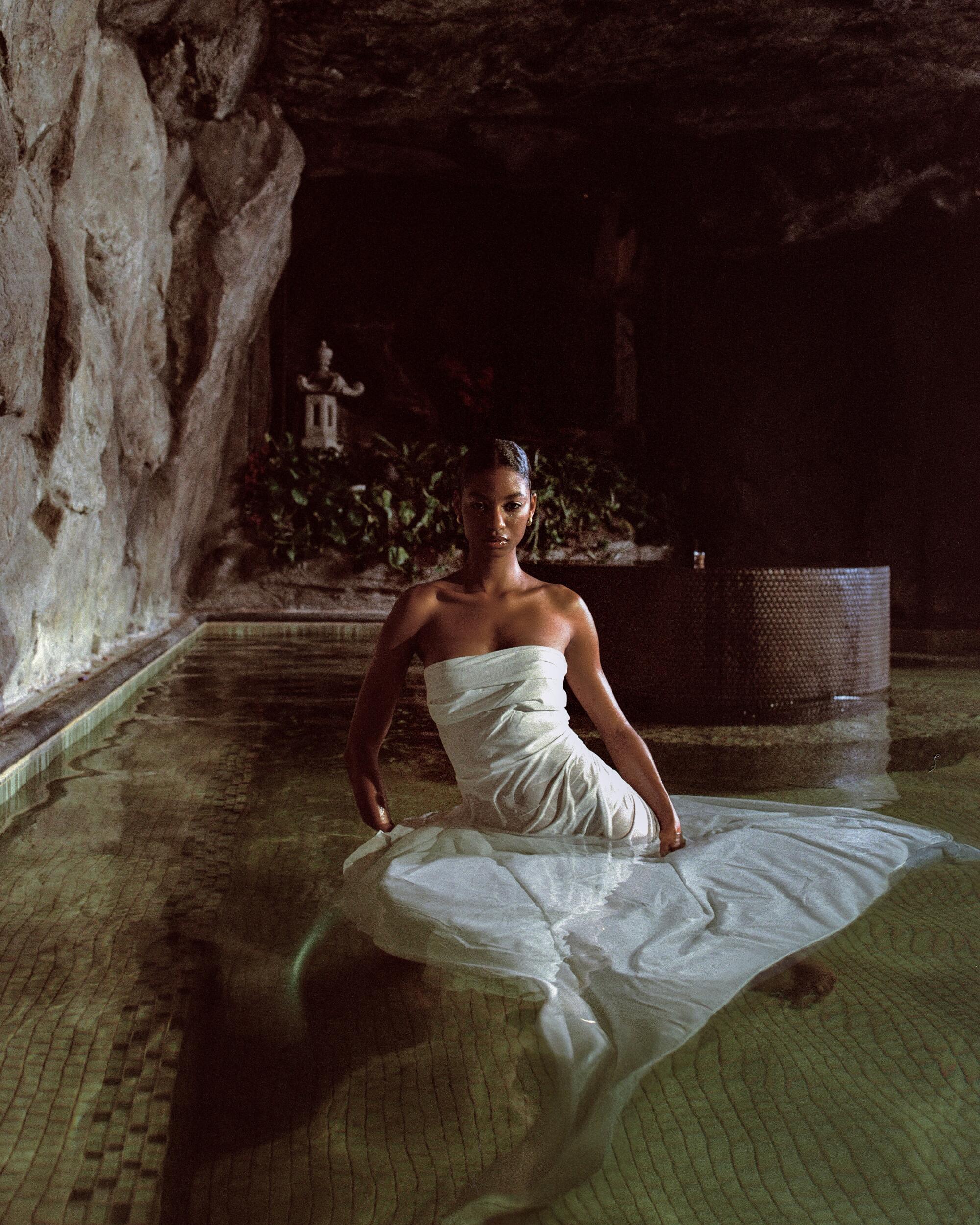

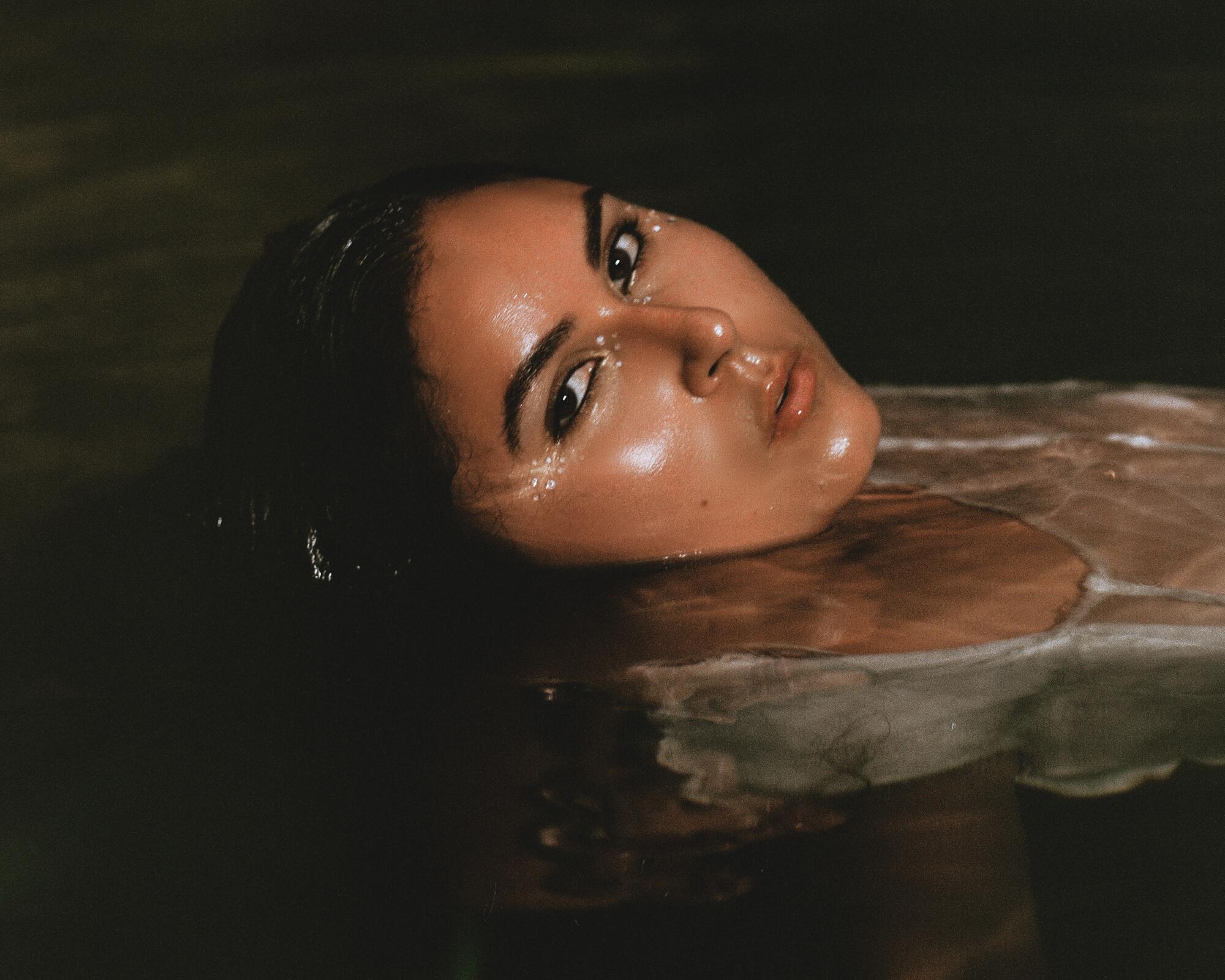
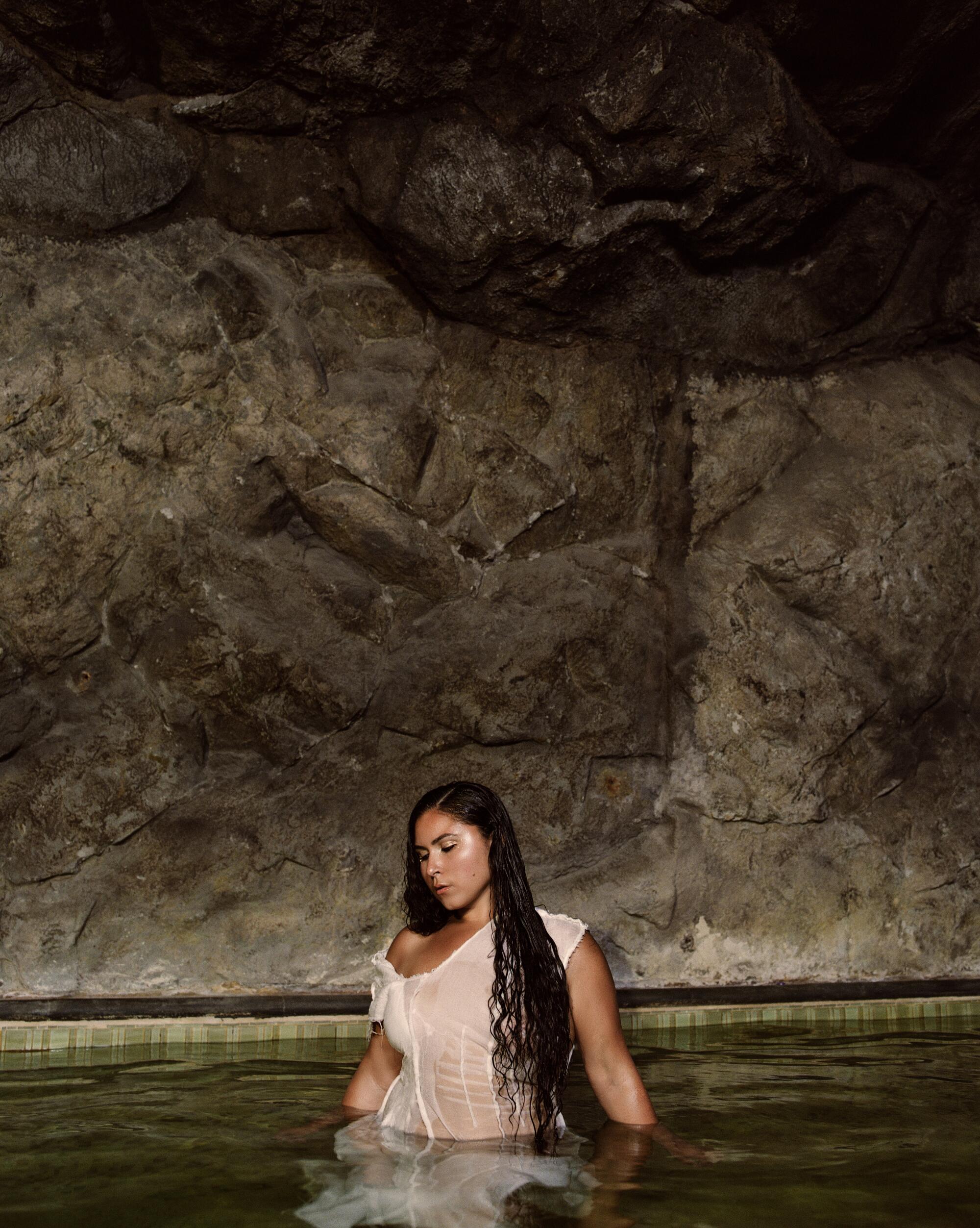
CW: You’ve lived in California, Italy, Japan. What have you ever discovered from every place about bathing and bathing tradition?
LK: In California, I discovered that nature is benevolent and magnanimous. For instance, nature supplies sizzling springs that bubble up with the proper bathing temperature in unbelievably stunning locations. In Japan, I discovered that shut consideration to the methods of nature can result in enhanced ranges of sensory expertise. And in Italy, I discovered that the extraordinarily excessive degree of bathing tradition circa 200 C.E. has fully disappeared.
CW: Today, spas and bathhouses have change into an escape from digital life. Again within the ’70s, folks didn’t have telephones glued to their arms. Was there something folks had been attempting to get away from then? Has the function or perform of the spa modified due to fashionable know-how?
LK: I feel life in L.A. at all times had its uniquely absurd dimensions. And bathing in its myriad varieties has at all times been a means of reveling in these absurdities — and as a means of transcending them.
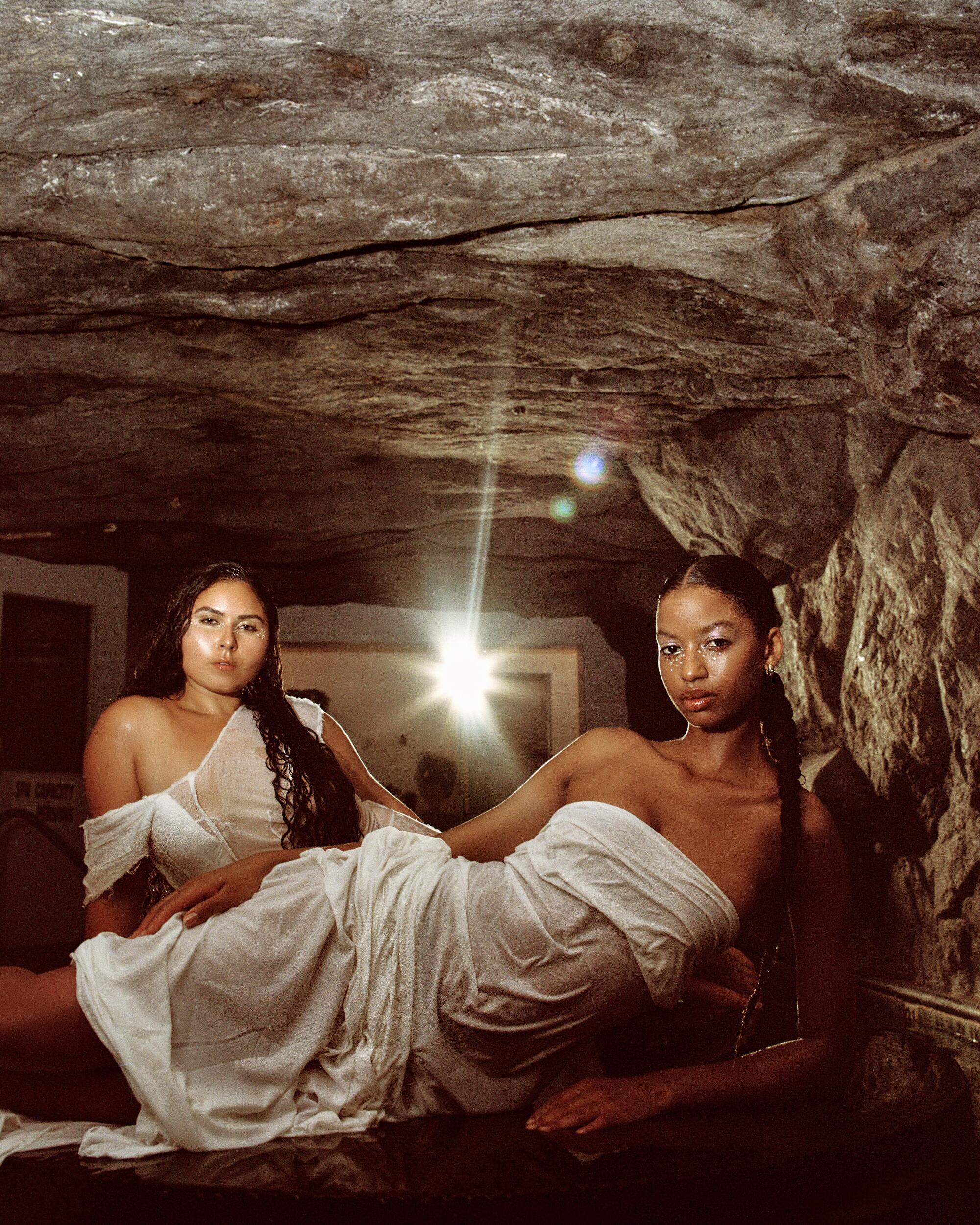
Courtney Wittich is on-the-clock style PR, off-the-clock sauna sommelier, bathing connoisseur and water gourmand. Discover her soaking it in and sweating it out.
Phrases Courtney WittichPhotography Taylor WashingtonStyling Autumn LovelaceArt path Jessica de JesusModels Madelane De Jesus, Cecilia Alvarez BlackwellMakeup & Hair Paloma AlcantarFashion director at giant Keyla MarquezProduction Cecilia Alvarez BlackwellPhoto assistant Nanichi OlivaStyling assistant Luna Curry Make-up & Hair assistant Kessia RandolphLocation Beverly Sizzling Springs

